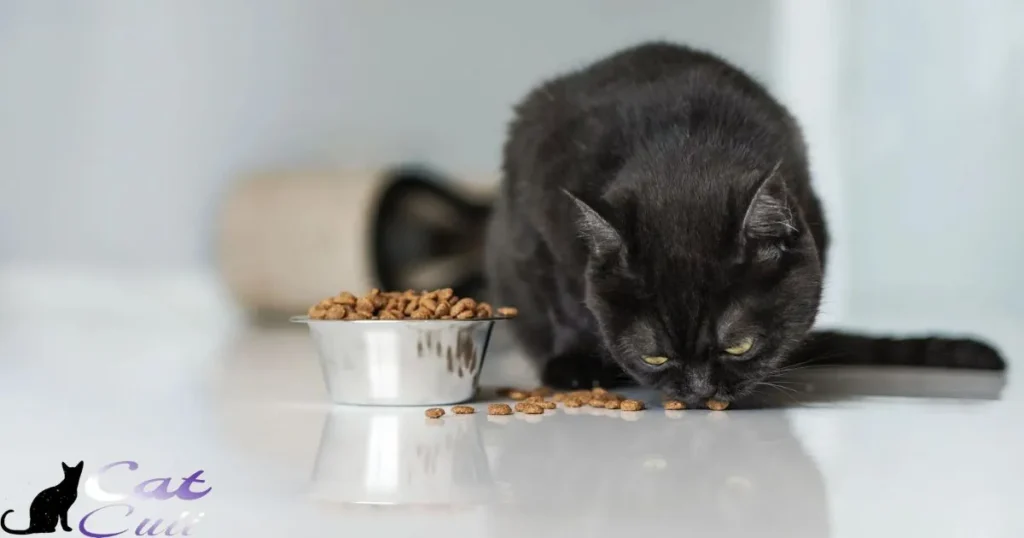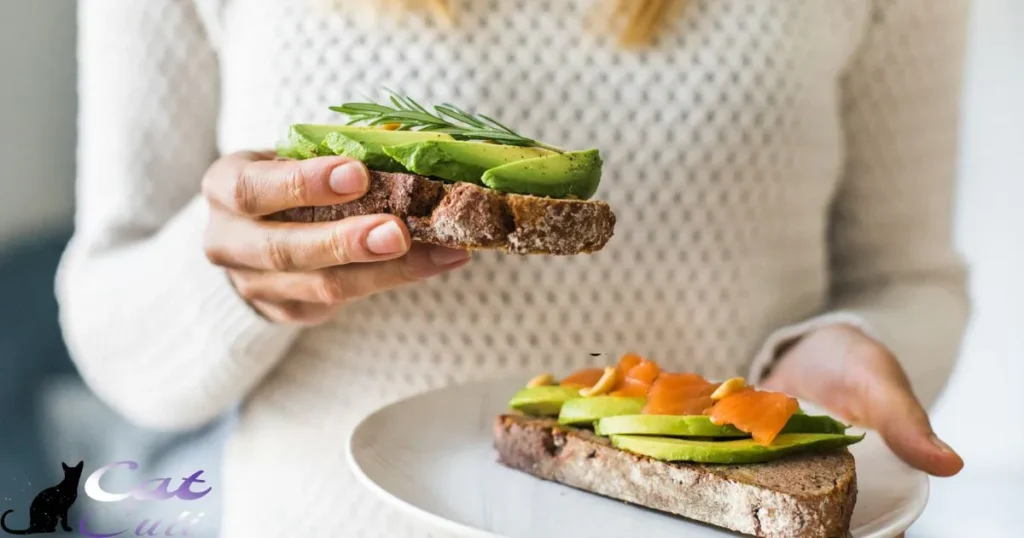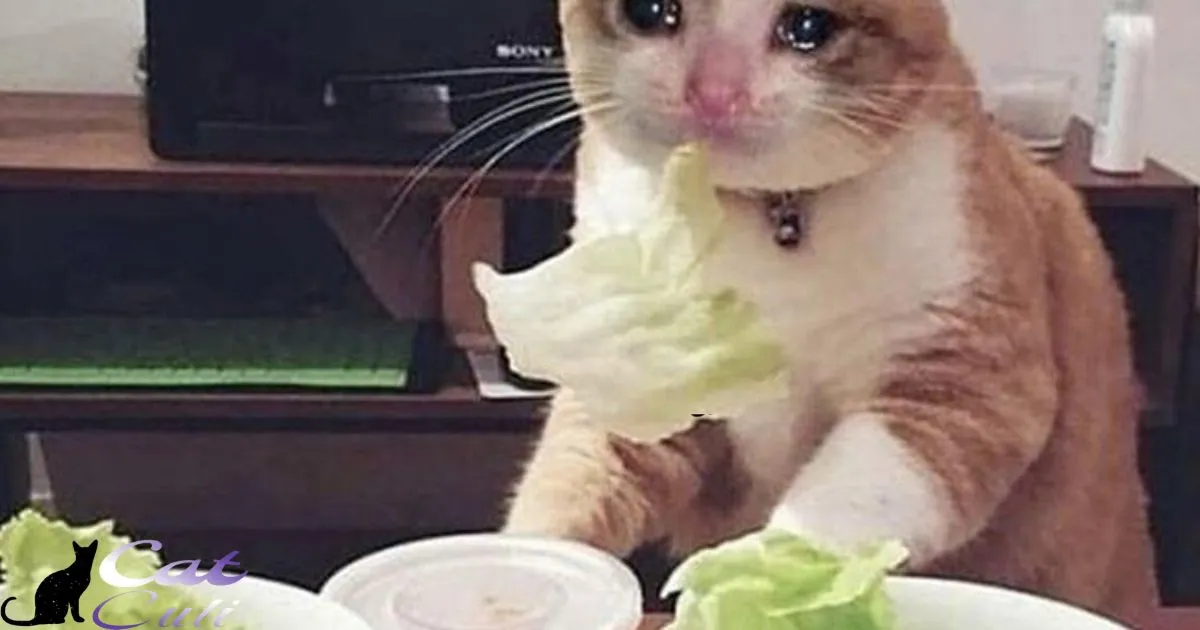Leaving food out for your cat at night means providing access to nourishment after regular meal times. This practice ensures your cat has food available overnight. It can attract pests and lead to overeating. Consulting with a vet helps decide if leaving food out aligns with your cat’s dietary needs and health.
Are you wondering, Should I leave food out for my cat at night? The midnight munchies debate for your feline friend is real. Discovering whether a late-night feast is a boon or bust for your cat’s health and your peace of mind can be a game-changer. Let’s unravel this nocturnal dining dilemma together.
Staying with us means exploring the ins and outs of the Should I Leave Food Out For My Cat At Night? puzzle. We’ll delve into the pros and cons, considering your cat’s health and your convenience. Stick around to uncover the best approach for your furry companion’s nighttime cravings.
How Long Can I Leave Cat Food Out?
You can leave cat food out for up to 4 hours in moderate temperatures. It’s crucial to remove it after this time to prevent spoilage and bacterial growth. For wet food, it’s especially vital due to its quick spoilage compared to dry kibble. When left out too long, it can become unsafe for your cat to eat.
Dry cat food can typically stay out a bit longer, around 24 hours, without going bad. Yet, it’s best to adhere to freshness guidelines on the packaging. Storing it in airtight containers helps maintain its quality. Always ensure your cat has access to fresh, uncontaminated food to keep them healthy and happy.
How Often Should I Feed My Cat?
Feeding your cat depends on its age and health. Adult cats typically eat two meals a day, morning and night, to keep them satisfied. Kittens need more frequent meals, around three to four times a day, for their rapid growth and energy needs. It’s crucial to follow your vet’s advice on feeding schedules to ensure your cat stays healthy and happy.
Consistency matters in cat feeding routines. Regular mealtimes establish a routine that your cat can rely on, promoting their overall well-being. Adhering to a set schedule also helps in monitoring their appetite and any changes in eating habits, alerting you to potential health issues early on.
How Long Can You Leave Wet Cat Food Out?
Wet cat food shouldn’t sit out for more than 2 hours at room temperature. Leaving it longer risks bacterial growth, making it unsafe for your cat. If it’s been out for over 2 hours, it’s safer to discard it to prevent potential stomach issues for your feline friend. Always prioritize your cat’s health by serving fresh food promptly and storing leftovers properly in the fridge.
Refrigerating leftover wet cat food keeps it safe for up to 24 hours. Cover the unused portion and store it in the fridge, making sure to use it within this timeframe. Beyond this period, it’s best to toss it out to avoid any risks of spoilage or contamination that could upset your cat’s tummy.
How Long Can You Leave Dry Cat Food Out?
Dry cat food can sit out for up to 24 hours before losing its freshness. After this time, it might lose flavor and nutrients. It’s crucial to store it properly in a sealed container to maintain its quality. Leaving it out for too long could make it less appealing for your cat.
If you leave dry cat food out beyond the 24-hour mark, it might invite pests or bacteria. These can pose health risks for your cat. Always check the food for any signs of spoilage or changes in texture before letting your feline friend munch on it.
Should I Leave Food Out For My Cat At Night?
Leaving food out for your cat overnight can be convenient, but it might attract unwanted pests. Cats are natural grazers, so having food available can mimic their natural feeding behaviours. It’s essential to monitor portions to prevent overeating and potential weight issues.
Consulting a vet helps determine if leaving food out aligns with your cat’s dietary needs and health.Deciding whether to leave food out for your cat at night involves balancing convenience and potential drawbacks. Ensuring your cat has access to food aligns with their instinctive eating patterns.
Yet, managing portion sizes and considering the risk of attracting pests are crucial factors in making this decision. Seeking advice from a vet helps tailor feeding practices to best suit your cat’s well-being.
Why Doesn’t My Cat Finish Their Food?

Cats often leave food uneaten due to their instinctual behaviours. They might prefer fresh meals or dislike the food’s temperature. Some cats eat smaller, frequent portions, leaving food behind intentionally. Health issues like dental problems or stomach sensitivities can cause them to stop eating.
Understanding your cat’s eating habits is crucial. Some cats enjoy smaller, more frequent meals, while others prefer larger portions. Keeping an eye on their preferences and ensuring the food is fresh and at the right temperature might encourage them to finish their meals. If concerns persist, consulting a vet helps rule out underlying health issues.
Understanding Your Cat’s Natural Eating Habits
Their wild instincts drive cats to be more active at dawn and dusk, impacting their eating habits. Understanding this, Pet Pride A Good Cat Food recommends smaller, regular meals to align with their natural rhythms, fostering a healthier eating routine.
Understanding your cat’s inclination for sporadic, smaller meals aids in catering to their needs. This knowledge allows you to regulate feeding times, ensuring they don’t overeat or remain hungry. Incorporating these insights into their diet can improve their overall well-being and align with their instinctual eating habits.
Whether Or Not To Leave Food Out For My Cat At Night
Leaving food out for your cat at night depends on various factors. Cats have different eating habits, so some might prefer nibbling throughout the night. It can attract pests and lead to overeating or weight issues. It’s essential to consider your cat’s health and dietary needs before deciding to leave food out overnight.
It helps establish a routine and prevents overeating or dependence on constant access to food. Some cats might need a small meal before bedtime due to health reasons or individual preferences. Understanding your cat’s behaviour and consulting with a vet can guide you in making the right choice for their well-being.
Effects Of Free Feeding On Cat’s Health
| Effects of Free Feeding on Cat’s Health |
| Positive Effects |
| 1. Convenience: Allows cats to eat whenever they desire. |
| 2. Reduced Stress: May lower anxiety by ensuring food availability. |
| 3. Weight Control: Some cats self-regulate their food intake. |
| Negative Effects |
| 1. Overeating: Can lead to obesity and related health issues. |
| 2. Attracts Pests: Food left out may draw insects or rodents. |
| 3. Loss of Routine: Cats may lose structured meal times, impacting behaviour. |
Alternatives To Leaving Food Out Overnight

Leaving food out overnight poses risks like attracting pests and leading to overeating in cats. Alternatives exist! Scheduled feeding times can regulate your cat’s intake and prevent overconsumption. Automatic feeders dispense portions at specific intervals, ensuring timely meals without the need to leave food out.
Interactive feeding toys engage your cat mentally and physically while dispensing small portions of food. These toys stimulate their natural hunting instincts, providing entertainment and portion-controlled meals throughout the day. Both options offer alternatives to leaving food out overnight, promoting healthier eating habits for your feline friend.
Tips To Avoid Overfeeding Cats At Night
- Establish set feeding times during the day to regulate your cat’s meal schedule.
- Use portion control with measuring cups or scales to accurately gauge food amounts.
- Consider interactive feeding toys that dispense controlled portions for mental stimulation.
- Invest in an automatic feeder to schedule and manage portion sizes for nighttime meals.
- Avoid leaving unlimited food out overnight to prevent overeating tendencies in cats.
- Consult with a veterinarian to determine your cat’s specific dietary needs and portion sizes.
Is Leaving Food Out For Your Cat At Night Necessary?
Leaving food out for your cat at night isn’t always necessary. Cats have a natural ability to regulate their eating habits, so they might not need food available 24/7. It’s crucial to consider your cat’s specific needs and health status before deciding whether to leave food out overnight.
Some cats might benefit from scheduled meals rather than constant access to food. This approach helps in managing their diet, preventing overeating or attracting pests. Consulting a veterinarian can offer tailored advice on whether leaving food out at night aligns with your cat’s dietary requirements.
It Provides Freedom Both For You And Your Pet Cat
Leaving food out grants freedom to both you and your cat. Your pet can munch whenever hungry, relieving you from strict feeding schedules. It also fosters independence for your cat, ensuring they’re not reliant on your presence for every meal. This setup promotes a more relaxed environment, benefitting both you and your furry friend.
When food’s available, your cat can nibble at leisure, accommodating their natural eating patterns. It lessens the urgency for you to rush home or disrupt your schedule for feeding times. This freedom fosters a sense of autonomy for your pet while offering you the flexibility to manage your day without worrying about strict meal routines.
Should I Leave Water Out For My Kitten At Night?
Leaving water out for your kitten at night is important for hydration. Kittens are active and need constant access to water, especially during their growth stages. Providing water ensures they stay hydrated and healthy through the night. It’s a simple way to support their well-being and keep them comfortable.
Monitor the water level to ensure cleanliness and prevent spillage. Keeping the water fresh by changing it regularly helps prevent contamination and keeps your kitten eager to drink. Remember, a hydrated kitten is a happy kitten, so leaving water out at night can contribute to their overall health and happiness.
Can I Leave My Cat Overnight Without Food?
Leaving your cat overnight without food isn’t ideal. Cats need consistent access to food for their well-being. Skipping meals might lead to hunger or stress for your pet. It’s important to arrange for enough food or consult a vet for guidance on safely managing your cat’s meals during extended periods.
Planning ahead by leaving sufficient food or arranging for a timed feeder can ensure your cat’s comfort overnight. Consulting your vet can help establish a feeding routine that suits your cat’s needs and keeps them content during your absence. Remember, a well-fed cat is a happier cat.
Should I Leave Dry Food Out For My Cat All Day
Leaving dry food out for your cat all day offers accessibility for your furry friend’s munching needs. It ensures your cat can nibble whenever hunger strikes. It’s crucial to monitor portion sizes to prevent overeating and potential weight issues. Consulting your vet helps tailor a feeding schedule that suits your cat’s dietary requirements.
Being thoughtful about leaving dry food out for your cat all day ensures they have access to sustenance when hungry. It’s essential to regulate portions to avoid excessive eating and potential health concerns. Seeking guidance from your vet ensures you strike the right balance in your cat’s feeding routine.
Should I Feed My Cat Wet Food In The Morning Or At Night
- Feeding wet food in the morning offers a fresh start to your cat’s day, providing energy and hydration after a night’s rest.
- Nighttime feeding with wet food can be beneficial as it mimics hunting behaviour, satisfying your cat’s natural instincts.
- Morning feeding allows for more active digestion throughout the day, while nighttime feeding may help your cat relax before sleep.
- Consider your cat’s preferences and routine; some cats may prefer morning meals, while others might enjoy a nighttime feast.
My Cat Only Eats At Night
My cat prefers eating during the nighttime hours. She nibbles on her food when the sun sets, displaying a habit of consuming meals primarily in the dark. This behaviour might stem from her natural instincts as a nocturnal creature, seeking nourishment when the surroundings are quieter and calmer.
This eating pattern might indicate a preference for a quieter and less active environment. Cats, known for their nocturnal nature, may feel more comfortable eating when the hustle and bustle of the day
How Long Can Wet Cat Food Sit Out Covered
Wet cat food, when left out and covered, should ideally be consumed within 2 hours to maintain its freshness and prevent bacterial growth. Leaving it out for longer periods can lead to spoilage, risking your cat’s health. To ensure your furry friend gets the best nutrition, store uneaten wet food promptly in the refrigerator.
When wet cat food sits out covered, it’s like a ticking clock before it loses its freshness. To avoid any stomach upsets or health issues for your cat, it’s best to follow the two-hour rule. After that, consider refrigerating any leftover food to keep it safe for your feline friend’s next meal.
FAQ’s
Should I put my cat’s food away at night?
It’s wise to remove uneaten food to prevent spoilage and pests. Cats often adjust to meal schedules, not needing constant access.
Can cats go without food at night?
Yes, cats can go without food overnight. They’re adaptable; occasional fasting won’t harm them if they have regular meals.
Can cat food be left out overnight?
Leaving cat food out overnight risks spoilage and attracts pests. It’s better to store it properly to maintain freshness.
Is it bad to always leave food out for cats?
Constant access to food can lead to overeating and health issues. Controlled portions at meal times are healthier for cats.
Conclusion
In conclusion, the question of Should I leave food out for my cat at night? comes down to balance and moderation. While cats can adapt to different feeding routines, it’s essential to consider their health and dietary needs. Leaving food out overnight might seem convenient, yet it can invite pests and lead to overeating.
Ultimately, understanding your cat’s habits and consulting a veterinarian can guide the decision. Finding a middle ground between providing access to food and maintaining a healthy feeding routine is key. Whether you choose to leave food out or stick to set meal times, prioritizing your cat’s health and comfort is paramount








